A Different Kind of Hangover | The Mourning After
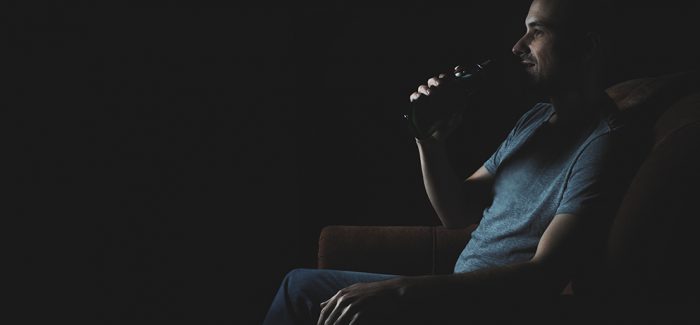
- Seth Garland
- On January 14, 2020
It’s a rare, quiet moment in the house, about 1:30 a.m. on a Saturday morning. I’ve got an understandably stressed-out wife and a brother-in-law actively dying from cancer in my home. Peaceful moments are few and far between. Selfishly, I crave these quiet moments more than anything else in life right now—the moments when we don’t hear the labored wheezing or pained moaning that stems from cancer eating through the bones of a man who’s barely old enough to be considered middle-aged.
Get the Creative Juices Flowing
With a freshly poured pint glass full of beer next to my laptop as I write this, I admit I never actively thought of beer as a coping tool. Beer has always been a very normal, natural way to unwind after a hard day of work. I never needed to drink a beer when I had a rough day, but it was always nice to have a cold one after 10 hours on the job. Beer was always a part of the fun things in life: Ballgames. Concerts. Clubs and house parties in my 20s. After-work happy hours in my 30s. Midday lunches when the boss wasn’t in the office.
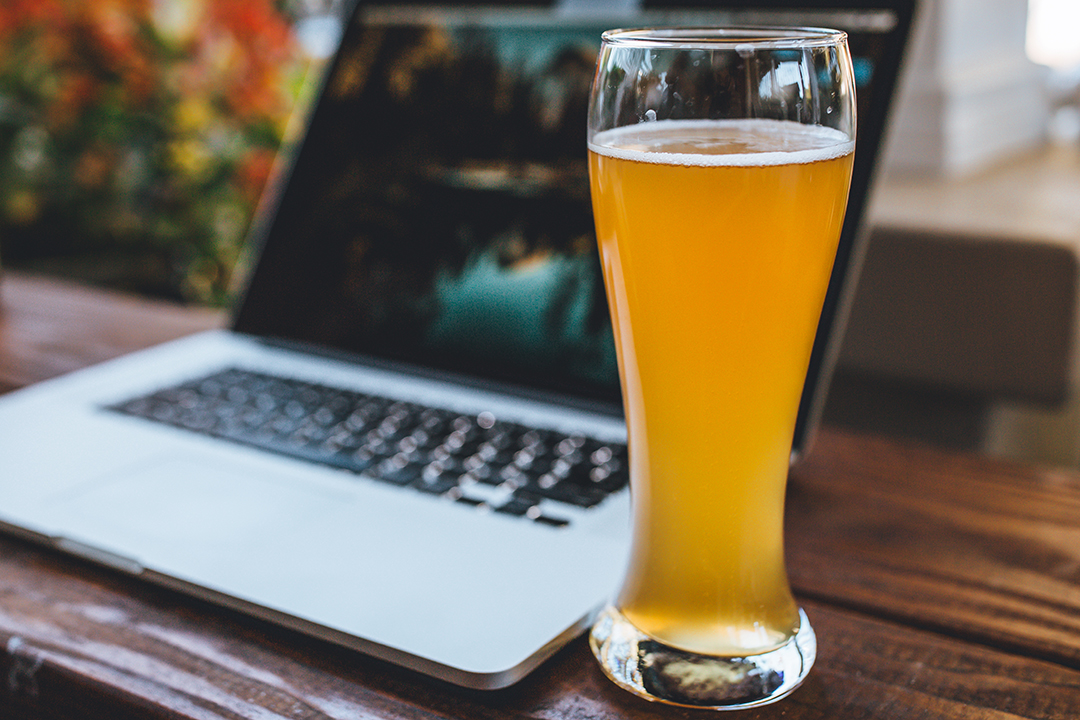
Beer has often been perceived as creative fuel, fit for the internal combustion engines of all levels of writers—from the lowliest, blog-writing Ford Pintos to the most ingenious, prose-crafting Lamborghinis of our time.
As a writer (one who certainly hangs out nearer the Ford Pinto end of the spectrum), beer helps me block out the clutter in my head and work through some of my thoughts. The old saying “write drunk, edit sober” sounds good on the surface. But most of the time what I end up with is a bunch of boozy ramblings and very little next-morning drive to massage these ramblings into anything coherent.
The classic image of the “drunk poet on payday” is pretty damn pervasive. Feeding this stereotype is the fact that there’s actual data to back up the idea that writers drink more than the average person. So as a beer writer, it’s logical to assume that you generally have to have your shit together to avoid falling victim to a world of booze-filled landmines.
Plenty of Room at the Hotel Colorado
When I started to recognize that beer was making a transition from “casual hobby” to “coping tool” in my life, it was concerning for a lot of reasons. Most concerning was the fact that even though we know addictive tendencies can transcend any particular substance, I had always regarded beer as my safe place. Beer was my buddy. Beer was the casual conversation at a funeral to distract me from the crushing impermanence of life. Beer was the comfort of South Park reruns playing in the background while I tried to knock out some emails. Beer was as much a part of concerts as the music itself. Beer was imbued into baseball games as much as pinstripes and pitching (bad pitching for Rockies fans).
A few months ago, my brother-in-law was abruptly dropped off at the doorstep for me and my wife to take care of. The person in charge of his care could no longer foot the bill, emotionally or financially, but proper end-of-life care had yet to be set up. In 2017, he had been diagnosed with stage 4 cancer and given just a few weeks to live if he didn’t get treatment. He sought treatment, fought a hard fight and bought himself nearly two extra years. Despite all of these efforts, however, the treatments had stopped working and it looked as though his time was finally running out. The easy thing to do would have been to set him up in a hospice right away, but that seemed really awful since he could technically still get around on his own at the time.
It’s impossible to imagine the mindfuck someone has to go through when they start to lose their mental faculties, but yet have to try and wrap their brains around something as intense as imminent death. It was also pretty hard to watch my wife go through what she was going through, watching her brother’s light get dimmer and motor skills deplete with each passing day.
It’s the quickest glimpses that you catch, I think, that lead you to reflect the longest: Here’s this dude, sitting on my patio, smoking a cigarette. The weather’s shitty. He’s got nothing to say, but in his face, you can see that he’s lucid and trying to imagine what comes next—what happens when the music’s over and the lights go out?
Before the abrupt delivery at our doorstep, my wife had been driving over an hour each way after work every day to visit her brother. On the weekends, they would spend time in Estes Park. I stayed home, mostly, taking care of the yard and the pets. These were the last of the “good” days when her brother was still independently mobile. When all else fails, it’ll be comforting to know that they made the most of that precious time.
Once he was left in our care at home, there was only so much I could do, personally. I was as supportive, helpful and patient as I possibly could be (I think). My wife’s brother didn’t know me very well, so I was kind of a stranger when this all started. Every passing moment in which he became less and less coherent, I became more and more of a stranger. So regardless of how willing I was to help, there was only so much I could do without making things weird or making people feel uncomfortable.
I’m Not Here (This Isn’t Happening)
During this stressful time, no matter how patient we were or how great of a caregiver my wife was, the home stopped being our home. My wife was not really my wife. Our lives were not really our lives. Everything we did revolved around death. As temporary as the situation was, it still hurt. This situation hurt for a lot of reasons, but it really hurt to know this in particular: Our patience, in many instances, was drawn from the fact that we knew my wife’s brother would be dead soon. What a terrible fucking thought, and what a terrible fucking place to catch yourself drawing patience from.
So amid all of this intense existential and psychological shit going on, I tried to find alone time wherever/whenever I could. On weekends, late at night, I would go down my office, pour several beers and try to find some peace. Sometimes I would write. Sometimes I would tinker with some songs I had been working on. Sometimes I would just play video games and zone out. But whatever I was doing, it would always involve beer.
Beer was still a part of all of the fun things in my life. But fun had taken on a new meaning and beer had taken on a very different role in the fun. Instead of my good-time buddy, beer became the only way I could feel good about life.
Instead of beer accompanying the great times in my life, it took the leading role in my happiness. My writing merely accompanied the beer drinking. Playing video games played second fiddle to tipping back a few cold ones.
As the weeks went on, I looked forward to Fridays way more than normal. Fridays were my opportunity to drink beer, be alone and feel good. My wife could no longer have drinks with me because she always had to be on-point as a caregiver. I didn’t drink in front of her—it seemed unfair. But we couldn’t leave the house together, so there were no date nights. No fresh air. No out-of-house experiences. So all of my “fun” alone time happened after everyone went to sleep on Friday nights, even though sleep only came in spurts of an hour or so at a time.
I used to be fine with one beer, but it became increasingly evident that one beer wouldn’t cut through the layer of reality I so desperately needed it to cut through. Two beers didn’t do the trick either. Three beers got me close, but once I hit that point, all bets were off. Three beers often led to four beers, which could have led to any number of beers before I passed out on the recliner in my office.
The Last Beer in the Fridge
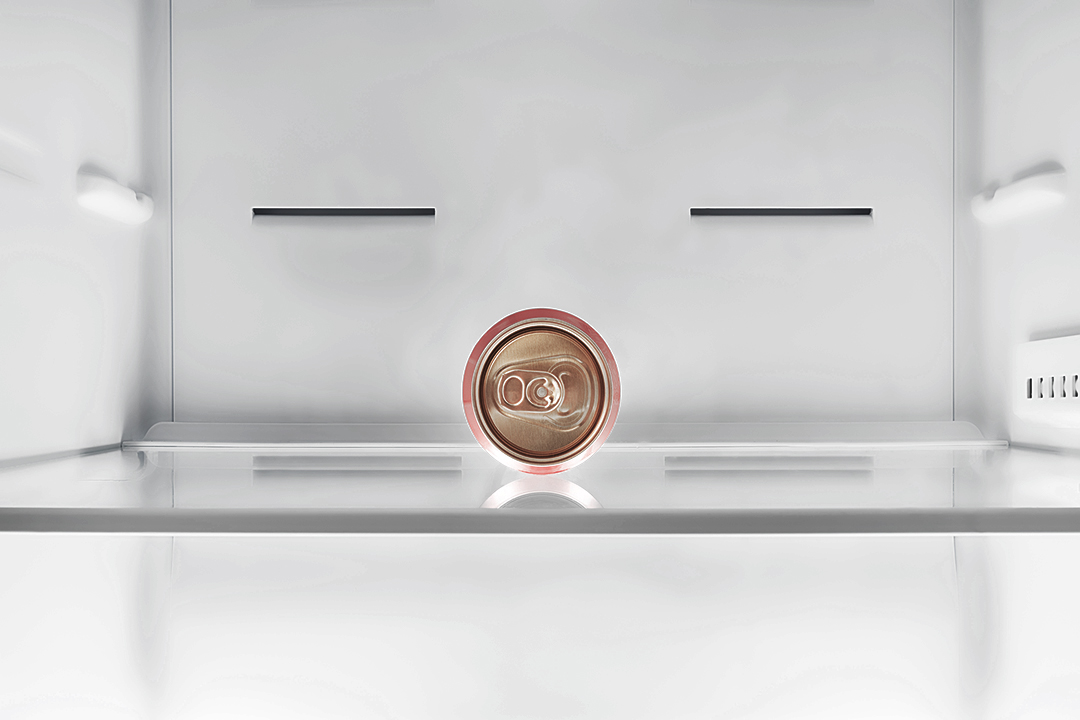
Back in the day, I could’ve handled all of this drinking with ease. But the increasingly devastating hangovers that come with age turned my weekends into pathetic wastes of time. Instead of hanging out with friends, taking care of the yard or spending quality time with my family, my weekends became all about nursing hangovers: Hours spent in bed, followed by an hour or so of watching TV while my wife took care of her brother and tried her best to look happy doing it.
When I realized that my beer-induced stress relief left my wife alone to do all of the heavy emotional lifting, I felt pretty fucking empty, like bottom-of-the-beer-glass, last-beer-in-the-fridge empty. But this wasn’t some kind of breakneck epiphany I had—it came through a gradual comprehension of the complete scope of the situation over time.
Thinking about it, my rationale was this: Since my wife’s brother was kind of a stranger, and since he was not my immediate family, I felt less responsibility to be alert and on top of my game. And since we weren’t really able to go anywhere, what did it really matter if I had a hangover? There were only a few people my wife’s brother trusted and we needed those people to help out during the day so we could each go to work. So our after-work options were pretty limited. Sure, I could’ve left the house and hung out with friends as I saw fit. But that’s not really what marriage is (or at least shouldn’t be). We suffer together, we celebrate together.
I thought that opening my home and being compassionate during a tough time was enough. I felt entitled to have my weekly indulgences, even though my wife was able to have none. It feels pretty shitty and selfish to reflect on this all, but I think it’s important to talk about this for a couple of reasons: 1) It never occurred to me that drinking could be a problem without anyone else telling me that it was a problem, 2) I had never considered how hangovers really impacted the other people in my life—they always felt like personal punishment and 3) Beer writers absolutely can struggle with varying degrees of alcohol abuse and it’s not talked about too often. But the bottom line is, I wasn’t being the best person I could be and drinking too much was part of the reason why.
Embracing the Mistakes
As a beer writer, you never want beer’s role in your life to be anything but positive. It’s such a great hobby/profession to have and you meet so many amazing people doing it. Maybe I didn’t have to crash a car or get arrested to be reminded of what beer’s role in my life should be. And maybe writers are more prone to drinking alcohol. Yes, social media bombards us with highly suggestive advertising and comes pre-loaded with a face full of inadvertent peer pressure. And yes, there’s a lot of stressful shit going down at my house. But none of this is an excuse; none of this completely frees me from accountability.
You would think that the perspective you get from living with a dying person would be enough to keep you from doing unhealthy things. But it’s not. When we’re confronted with the most significant question of existence, we tend to feel the most ineffectual. And that hopeless feeling of ineffectuality can give birth to a lot of self-loathing, which unfortunately in my case led to some overindulging.
I know other people struggle tremendously with alcohol and a lot of people only come to terms with their problem after something incredibly traumatizing happens. I don’t want to downplay any of the serious problems anyone has ever had with alcohol. My problem, personally, was that beer’s role was changing in my life and it was affecting those around me. It wasn’t a dramatic moment when I realized this and it wasn’t an instant recovery, either. But I think that’s how it goes for a lot of people, which makes it an important topic to explore.
Thank You for Your Time, Here’s to Life
It took a little practice and a lot of willpower to get back on the right path. There have been some bumps in the road for sure, but I wouldn’t be writing this if I wasn’t in a good place and I didn’t think this story had some value.
I think by the time I noticed what was happening with the drinking, my wife was so deep in the middle of everything else going on that not much really phased her. I talked to her about this article and why I was writing it. She just gave me a hug and kept going about her business. I don’t have a real strong history of making things “better” in my life, but hopefully, I can look back at this all and know, at the very least, I didn’t make things too much worse.
In the brief periods of time when everything didn’t feel so heavy, what we mostly did was watch custom car shows on TV or drive RC cars in the backyard. My brother-in-law would try and explain a bunch of things about car customization that I had no hope of understanding. But he did introduce us to the world of high-end RC cars, which is pretty cool. Throwing a socially awkward person like myself into a situation where my interactions with another human are fairly vital is an interesting experiment. But, where I might’ve considered myself a stranger at the start of all of this, at least now there were bits and pieces of connection.
Even though I’m not in full control of what’s happening at my home right now, I am glad to be heading towards the right path again as far as beer’s concerned. There are a lot of hard, sad, shitty things on the horizon and I need to be stronger and more prepared when the time comes. If not for myself, then at least for my wife.
I am lucky to work with, be friends with and/or be married to some very positive, supportive people. Even though there are occasional negative blips on the craft beer radar, it really is an overwhelmingly positive group of people. I’m glad to be in a place where I can start to go back and shine a light on the positive aspects of the craft beer community and showcase the wonderful folks who work so hard to make great things (and great beer) happen every day.
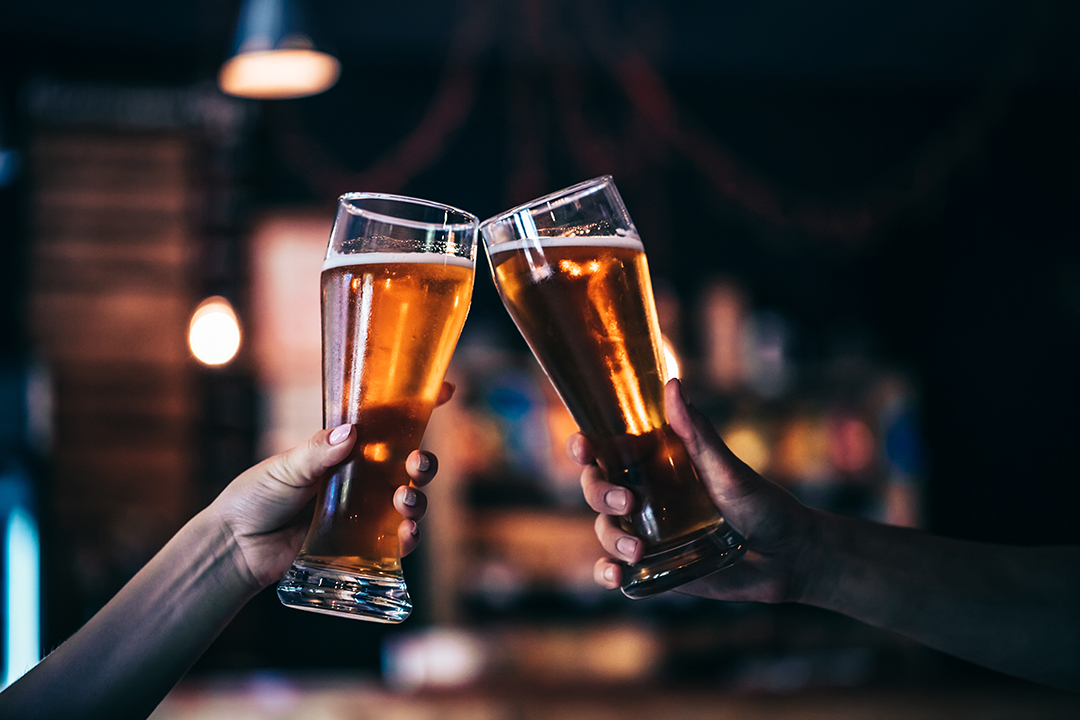
It won’t be under the best of circumstances that my wife and I are finally able to spend a night out alone again. But when that day comes, I promise you this: I won’t be using beer as a sorrow-drowning coping tool. Instead, I will be raising a glass, in celebration, to toast the life of a stubborn motherfucker who, upon being told he only had two weeks to live, shirked the odds and stretched that two weeks into almost two extra years of life.
Related Posts
When Craft Breweries Bite Back | Summit Brewing’s Unique Approach to its UnTap... March 29, 2018 | Taylor Laabs
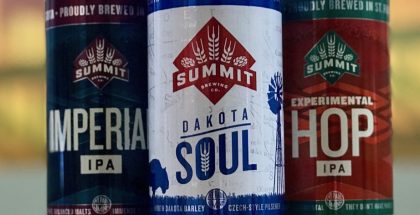
Product Showcase | Brewswap (Beer Trading App)... October 28, 2016 | Mathew Powers

Book Review & Interview | The Beer Bucket List... July 12, 2018 | David Nilsen

PorchDrinking’s Weekly Denver Beer Beat | July 5, 2017... July 5, 2017 | Jeremiah Cornelius
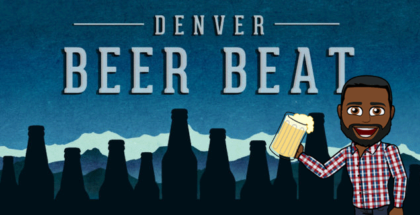
-
January 17, 2020
Not Putting My Name For ReasonsI totally get this. I was caregiver to my wife when she was going through breast cancer treatment (which has resulted in her now being 100% cancer free). I became the sole provider of care to her, our kids, and our pets, which was a lot to take on. I teetered between not being able to drink too much because I had to be on point and drinking beer as frequently and copiously as I could within that restraint. I’m sure that had I not had such requirements placed on me by circumstances, I’d have gone deeper into drinking than I did (or have ever).
A year on from that experience, my relationship with beer continues to be different than it was before, serving more as a vehicle for experiences than a goal in and of itself. The recognition that none of us is getting out of here alive has made me work harder to make every new beer an educational and experiential occasion. So much so that I’ll be taking my Cicerone test in March.
Thank you for sharing your experience.



Comments